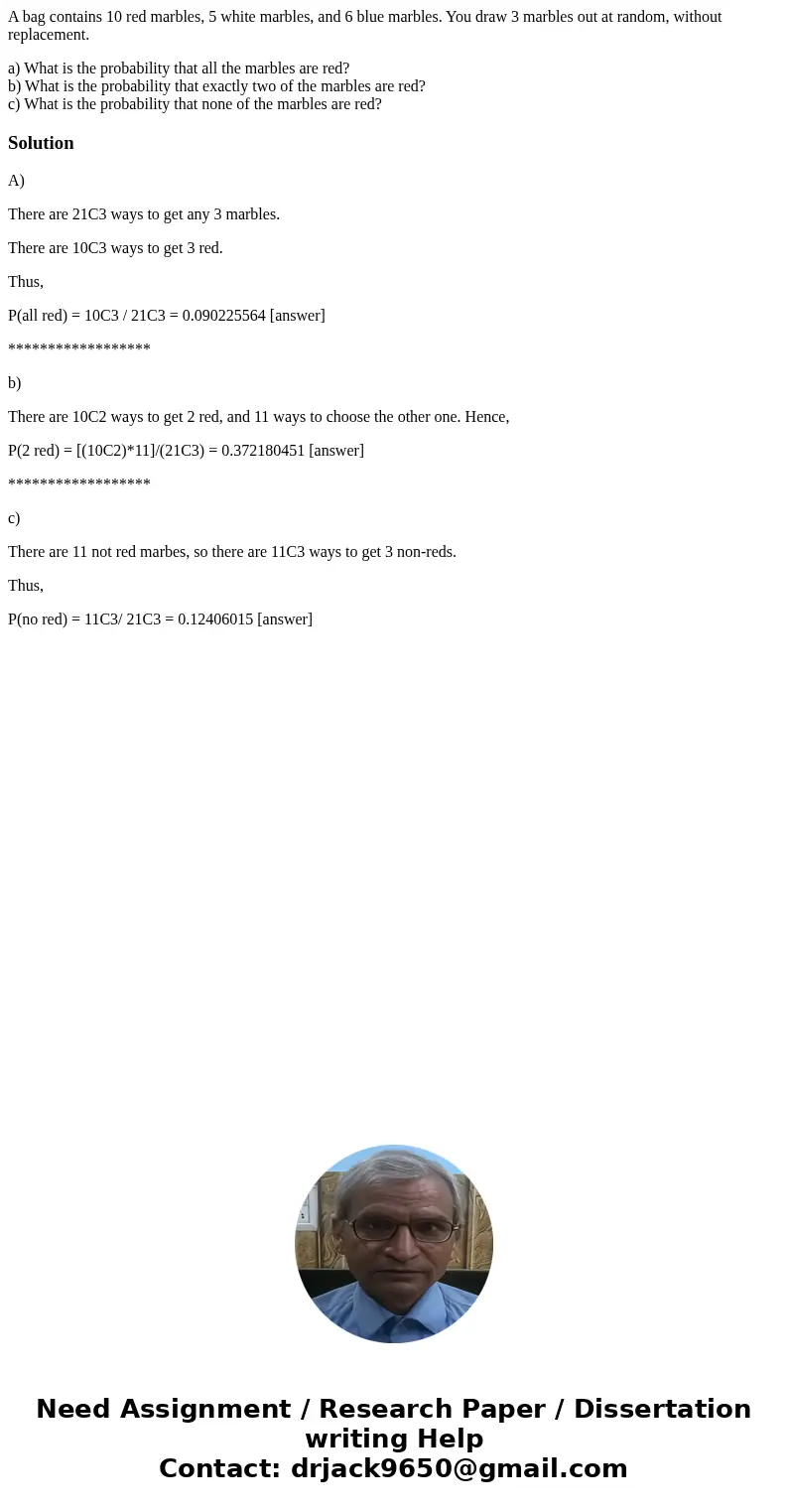A bag contains 10 red marbles 5 white marbles and 6 blue mar
A bag contains 10 red marbles, 5 white marbles, and 6 blue marbles. You draw 3 marbles out at random, without replacement.
a) What is the probability that all the marbles are red?
b) What is the probability that exactly two of the marbles are red?
c) What is the probability that none of the marbles are red?
Solution
A)
There are 21C3 ways to get any 3 marbles.
There are 10C3 ways to get 3 red.
Thus,
P(all red) = 10C3 / 21C3 = 0.090225564 [answer]
******************
b)
There are 10C2 ways to get 2 red, and 11 ways to choose the other one. Hence,
P(2 red) = [(10C2)*11]/(21C3) = 0.372180451 [answer]
******************
c)
There are 11 not red marbes, so there are 11C3 ways to get 3 non-reds.
Thus,
P(no red) = 11C3/ 21C3 = 0.12406015 [answer]

 Homework Sourse
Homework Sourse